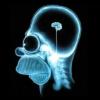I have found two drugs that may help grow/repair myelin which is of course important in learning and memory. I am more interested in benztropine since it is already available and tested on humans. So, does anyone have any experience with it? It is also available orally, IM, and IV. Would taking it orally even cross the blood barrier?
1) benztropine - anti-cholinergic agent already on the market to treat Parkinson's disease has been recently re-discovered to regrow myelin in damaged cells
The loss of myelin causes affected neurons to fail to transmit faithfully the messages that should be passing along them, leading to sensory, visual and movement problems and, in severe cases, paralysis.
But, there is evidence that, if the immune assault can be curtailed, a population of dormant brain stem cells, called oligodendrocyte precursors, can replace the lost myelin-making oligodendrocytes, leading to the re-insulation of the neurons denuded by the disease symptomatic improvement.
However, these cells appear to be too few in number to adequately replace those lost to the immune attacks, so recovery is incomplete at best.
Now, by screening over 100,000 different drugs, a team in California have uncovered one that strongly stimulates the production of new myelin-producing cells, known as oligodendrocytes, leading to the repair of MS brain lesions.
Ironically, the drug identified by Scripps Institute scientist Luke Lairson and his colleagues, is benztropine, which has been used for years to treat tremor in people with Parkinson's Disease. As such, it is already licensed for human use.
Benztropine works by blocking the action of a nerve signalling chemical called acetyl choline, which also keeps the oligodendrocyte precursors cells that make myelin in a quiescent state.
Interrupting this suppressive signal with benzotropine awakens the stem cells, triggering them to multiply and turn into new oligodendrocytes.
The team made the discovery by incubating the precursor cells with drug molecules in a culture dish before looking for markers of myelin production.
Promising leads were then tested further by growing precursors cells alongside cultured neurons and looking for evidence of successful myelination. When benztropine emerged as the most powerful candidate tested, the team then administered the agent to mice with the rodent equivalent of MS.
Treated animals showed dramatic improvements in their symptoms, and, under the microscope, significant re-myelination had taken place. In some further tests, the team also administered a low dose of immune-suppressing drugs; given alongside the benztropine, this regimen resulted in an even larger clinical benefit.
The researchers nonetheless urge caution. They point out in their paper in Nature, where the work is published, that, "benztropine has significant neurological and psychiatric side effects," emphasizing that further preclinical and clinical evaluation will be needed before the findings can be translated to the clinic.
http://www.thenakeds...s/news/1000341/
2) rHIgM22 - a new antibody currently in a phase 1 trial
If successful, a new remyelinating antibody called rHIgM22 may help reverse nerve damage caused by MS.
In a collaboration between the Mayo Clinic and Acorda Therapeutics, Inc., a “first-in-human” trial of the drug rHIgM22 to repair nerve damage caused by multiple sclerosis (MS) is currently recruiting volunteers.
Earlier animal studies of rHIgM22 showed improvements in motor activity, meaning a possible reversal of disability. If successful, this could be a groundbreaking achievement, particularly for those with progressive forms of MS, for which there are no treatments currently available.
There are currently ten disease modifying therapies (DMTs) available that have been approved by the U.S. Food and Drug Administration (FDA). Several more are poised to hit the market soon. While these drugs have become more effective at slowing disease progression and reducing the number of attacks a person with MS might have, none are able to repair or regrow myelin once damage has been done. But that could soon change.
Moses Rodriguez, M.D., a neurologist specializing in MS at the Mayo Clinic, and his team initially identified rHIgM22, recognizing its ability to protect and stimulate the cells that make myelin, called oligodendrocytes.
“This remyelinating antibody, if successful in clinical trials and approved, would be a novel approach to treating people with chronic neurologic deficits from multiple sclerosis or other similar conditions,” said Rodriguez in an interview with Business Wire. “We are excited that this Mayo discovery is now being evaluated in people with MS to determine its therapeutic potential.”
http://www.healthlin...lunteers-091813






















































